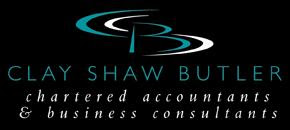Latest Clay Shaw Butler 'Looking after business' column

Looking after business, the new business page column from the Carmarthen Journal
By Nigel Roberts, finance and banking specialist with Carmarthen-based accountants Clay Shaw Butler

As someone who attended the old Queen Elizabeth Grammar School for Boys in Carmarthen in my youth, I can be expected to have some knowledge of the ‘Classics’.
One quote in particular always comes to mind when I talk to people about business planning.
It is the one from the Roman statesman and orator Cicero, who said, “Before beginning, plan carefully.”
As an aim, it fits the bill perfectly, as time spent planning is never wasted.
Your business plan is a key statement for your business, whether you are just starting up or whether you are a mature operation adjusting to the shifting sands of today’s economy.
The business plan is used for potential investors, banks, finance companies and other stakeholders who may help you raise the money you need for your venture.
It is also the key reference point for planning the course of your business over the next year, five years or 10 years. (In fact, some businesses have plans for all three timescales).
What should be included in the business plan?
It should include at least the following -
• a detailed description of the business and its mission statement to include the objectives set and how they will be met
• profiles or CVs of key individuals with supporting explanations of what skills they will bring to the business and illustrations of their competence
• forecasts of profit and loss account, balance sheet and cashflows for at least the coming three years to demonstrate the business’s viability. These need to include assumptions used in their preparation which will support the figures and illustrate to the reader their reasonableness
• a detailed analysis of forecast sales objectives with as much supporting evidence as possible to illustrate their bases, to include marketing plans and budgets
• an executive conclusion and summary which should include a brief explanation of all the above. This should make the reader want to look further into the plan with the possibility of financial borrowing to follow.
• Also helpful in any business plan is a SWOT (Strengths, Weaknesses, Opportunities and Threats) analysis.
The plan should be as concise and honest as possible, continually illustrating the detailed research and planning you have done into your market(s).
My advice is to make the plan professional in its presentation, with graphical information if relevant.
Getting advice from an impartial advisor is also important – whether you come to Clay Shaw Butler or seek advice from other advisors and consultants operating in the marketplace.
The team at Clay Shaw Butler can be contacted on 01267 228500 or through the website at www.clayshawbutler.com


Comments